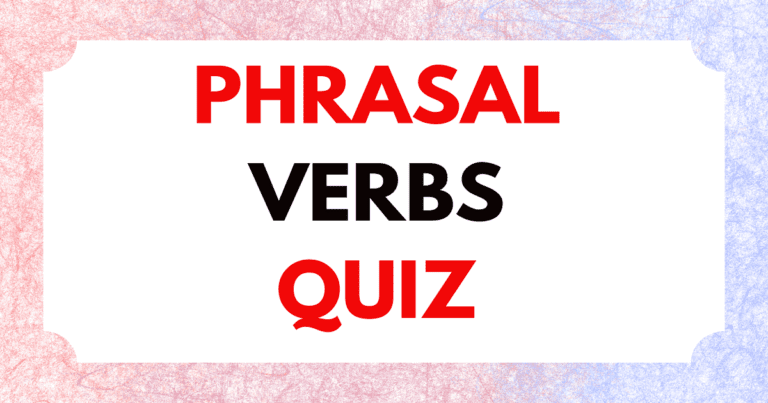Phrasal verbs, an essential aspect of the English language, are unique word combinations that act as verbs. They are formed by combining a verb with either a preposition, an adverb, or sometimes both. What sets phrasal verbs apart is that their meaning differs from the individual words that comprise them.
To illustrate this further, let’s explore a few examples of phrasal verbs in action:
Now it’s your turn to engage with phrasal verbs based on your personal knowledge and experiences. Complete the following sentences:
#1. The firefighters had to break the door __________ to rescue the little girl.
#2. The burglar broke __________ the house and stole all their money and jewelry.
#3. I don’t know why their marriage is breaking __________ .
#4. After two hours of hard work, we decided to break __________ for a little cup of coffee.
#5. We have to break __________ all our emotional barriers to feel free.
#6. When he spread the news, panic broke __________ in the city.
#7. Scientists will break __________ in their search for new sources of energy.
#8. Mary feels miserable, for she’s just broken __________ her boyfriend.
#9. Does this bring __________ memories?
#10. She had to bring __________ the children by herself.
#11. Did he ever bring __________ that book?
#12. Can I bring __________ my friend?
#13. Being a teacher doesn’t bring __________ much money.
#14. The idea came __________ her while she was reading “Hamlet”.
#15. The farmer himself came __________ the intruders.
#16. I came __________ Schumacher at that big hotel.
#17. The terrible scene of the crime continues to come __________ to me now and then.
#18. The properties will come __________ him on his father’s death.
#19. Nobody wants to come __________ as a witness of the crime.
#20. The Canadian swimmer came __________ first.




